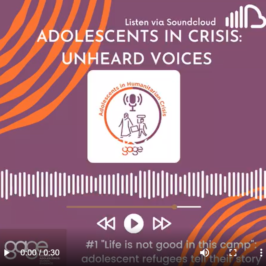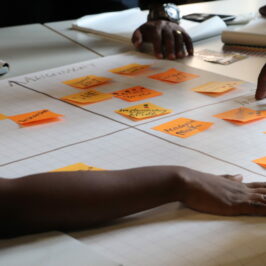
Working with organisations to evaluate the impact of their communication and media initiatives is at the core of what we do at CommsConsult.
In 2018, Thomson Reuters Foundation (TRF) commissioned CommsConsult to carry out an evaluation of the ‘Advancing Media Coverage of Modern Slavery and Human Trafficking’ project. The initiative is funded by the C&A Foundation (now called the Laudes Foundation). Through journalism training and editorial support, the project seeks to improve local journalists’ capacity to provide independent, accurate and fair coverage of modern slavery and human trafficking.
Our evaluation focused on TRF’s five-day training and ongoing mentorship of mid-career journalists in India. Our evaluation considered: a journalist’s confidence in newly acquired skills and how this drove their motivation; how they applied these newly acquired skills; the journalist’s overall job satisfaction and value for money for Laudes Foundation in terms of projects they invest in.
Specifically, our evaluation also assessed the relevance, effectiveness, efficiency, and impact of the training on its beneficiaries, in line with TRF’s goal of developing journalists’ skills in reporting on slavery and human trafficking.
Following a satisfactory evaluation, Laudes Foundation funded TRF to expand the training in Asia and Latin America for another three years. In 2020, TRF asked CommsConsult to undertake a mid-term review of the programme. The review covered training of 116 journalists in six countries — Bangladesh, Brazil, India, Mexico, Thailand and Cambodia.
Commenting on the evaluation delivered by CommsConsult, the Head of M&E and Grant Management for TRF, Tendik Tynystanov, said:
“CommsConsult had an excellent understanding of the topic and evaluation techniques, quickly building rapport with project staff and beneficiaries. They managed to navigate with confidence through the areas where project data was scarce.”
The role of the media in combatting modern slavery
TRF launched the training programme for journalists in 2015 to increase public understanding of the scale, threats and nature of forced labour and human trafficking and its impact on communities around the world. Despite global efforts by human rights groups, the media, and others to shine a spotlight on modern slavery issues, reports indicate that it continues unabated.
It is estimated that more than 40 million are modern slaves: more than 10 million of these are children. Modern day slavery encompasses forced labour; sexual exploitation; and forced marriage. Women form the largest group affected as they are vulnerable to human trafficking, and its affiliated acts of subjugation such as sexual slavery, forced labour and forced early marriages.
Evaluating training programmes is complex and this is especially so for media training programmes. Assessing impact is particularly troublesome, where training is provided to the reporter who is just one part of a chain and rarely has the say on the final outcome of their written work .
Commenting on CommsConsult’s involvement in the project, Director, Megan Lloyd-Laney said;
“Modern slavery is all around us, but often just out of sight. The media is uniquely positioned to identify and call out all forms of exploitation – but they need to be empowered to do so. Journalists need to be both equipped with the skills and confident to confront the practices on their own doorsteps to do this job effectively. We are proud to play a small part in TRF and the Laudes Foundation’s programmes to tackle this global crisis.”
Get in touch: Find out how CommsConsult can support your organisation. Email info@commsconsult.org or complete our contact form and one of the team will be in touch with you.




Leave a Reply